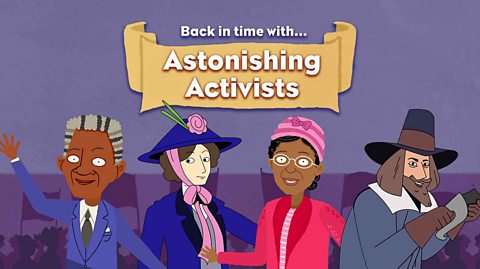This is Rosa Parks.

In 1955, she refused to give up her seat on a bus to a white person.
At that time, white people and black people were kept apart in some American states.
Her actions changed American history forever.

Watch: Rosa Parks and the Montgomery Bus Boycott
We use buses every day to go to school or into town. It's not unusual, but this story is about a bus journey that changed millions of lives.
Let's go to America, in 1955, to Montgomery in the southern state of Alabama.
There, when a woman called Rosa Parks refused to give up her seat, a bus journey became very important.
Rosa's refusal was a protest about racism against black people. Racism is when someone thinks youâre not as good as them because the colour of your skin or your race is different to theirs, so they treat you differently.
At that time, southern states in America, had something called âsegregationâ. This meant people of different skin colours had different schools, restaurants, even toilets.
Segregation happened on buses too.
One day, Rosa was in a seat for black people, but white people's seats were full. The bus driver wanted Rosa to give her seat to a white person, but Rosa said no!
Rosa was a member of a civil rights group which fought for black and white people to be treated the same.
She was arrested and taken to jail for a few hours.
Rosa didn't fight alone, people organised a bus boycott, which meant they stopped using buses for a year. They walked instead. This bus company lost a lot of money. The boycott was a peaceful stand against racism.
Judges eventually said having separate black and white parts of buses was not allowed.
"Hello, friends of freedom. It's a wonderful day and let us be thankful we have reached this point and we will go farther from now to greater things. Thank you!"
Today, Rosa Parks is remembered as an ordinary woman who took a stand to help black people in America be treated fairly. To be treated the same as whites.
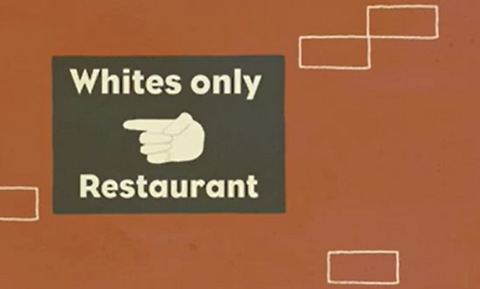
What was segregation?
- Slavery in the USA was banned in 1865.
- In southern states the âJim Crowâ laws segregated (separated) black Americans from white Americans at school, on public transport and in public places.
- These segregation laws stayed in place until 1965.
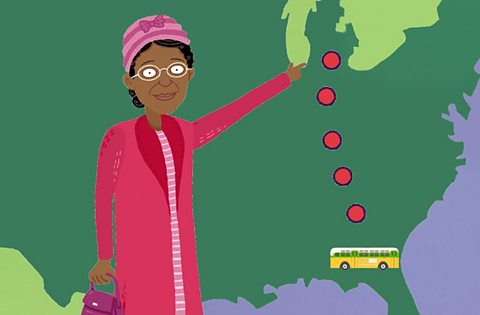
The bus boycott
- In 1950s America black people were treated very badly. One person who tried to change this was Rosa Parks.
- On December 1, 1955, Rosa was on a bus in Montgomery, Alabama.
- She was told to give up her bus seat to a white person. She said "No".
- The police were called, Rosa was taken off the bus and arrested.

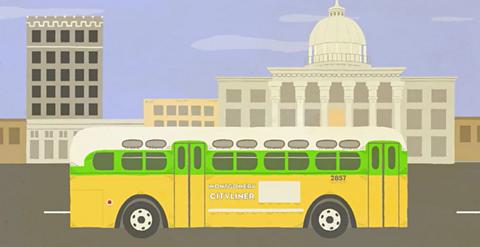
- This started the Montgomery bus boycott, where all black people refused to use the buses.
- The bus boycott was only meant to last for one day.
- In the end it lasted over a year. The law was changed so that black and white people could sit together.
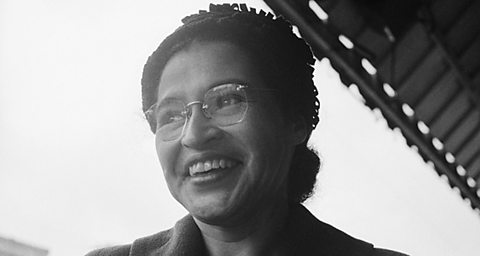
Did you know?
- Dr. Martin Luther King got involved. He campaigned for black people to have the same rights as white people.
- Rosaâs job was sewing and making clothes. She worked in a shop, but after her arrest she lost her job.
- She spoke out for civil rights all her life.

Activity 1 â Sort the events of Rosa Parks's life
Activity 2 â Rosa Parks quiz
Game: Astonishing Activists
Play Bitesize Primary games. game
Fun and educational primary games in science, maths, English, history, geography, art and design, computing and modern languages.

